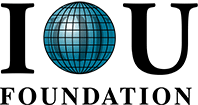As one of the very few university foundations in the world focused on providing distance education for social change agents, we at the Intercultural Open University Foundation (IOUF) meet and mentor many impressive people. One of our graduates, Dr. Christopher Thomas, has the distinction of having spent considerable time working with the Dalit population in India.
You may be familiar with the term “Dalit” in connection with Mother Theresa, the tireless champion of Calcutta’s poor and oppressed “untouchable” people. She worked for many decades providing housing, healing and nourishment to those who were otherwise unwelcome in Indian society. The term “Dalit” applies to members of classes considered “untouchable” by virtue of the impurity normally associated with their traditional occupations. Dalits fall outside the four-caste system considered common in countries like India and they are often much less respected than the Brahmins, Kshatriyas, Vaishyas and Shudras that make up most of the rest of Indian society.
Dalits today constitute approximately 17% of the population of India and they are also part of the social fabric of Nepal, Pakistan, Sri Lanka, and Bangladesh. Although India’s Constitution has abolished “untouchability,” Dalits commonly face discrimination and even abuse simply because of their birth. They might be prohibited from eating with people of other castes or prevented from entering village temples. They might be prevented from using common village paths or marrying people of other castes.
In some cases, Dalit children are segregated from other children in schools and in others, Dalits are paid less than standard wages for work of the same value. The National Campaign on Dalit Human Rights has a fascinating and extensive array of information about Dalit issues and when social activist and IOUF learner Christopher Thomas stepped forward to find out more about their conditions for his doctorate on Human Rights, he found much of concern.
Dr. Thomas is a writer and social worker who has written extensively in the areas of humanistic psychology, social science, philosophy and religion. He is a human rights counsellor currently resident in India, and he works for different charitable activities.
Dr. Thomas is an excellent example of the type of learner the IOUF serves best. He is highly motivated to improve conditions for a sector of the population that enjoys few champions and little comfort. He has spent substantial time “in the field” but he also has an impressive grip on the theoretical aspects of the issues he embraces as well.
Not all IOUF learners are walking in Mother Theresa’s footsteps but they all care deeply about the difference they can make with the life they’ve been given. They know that education is a key component to improving the world around them. And they have a global perspective on the work they do. If this describes you as well, we invite you to contact us today for more information on how you can live out your mission through an IOUF MA or PhD degree.
